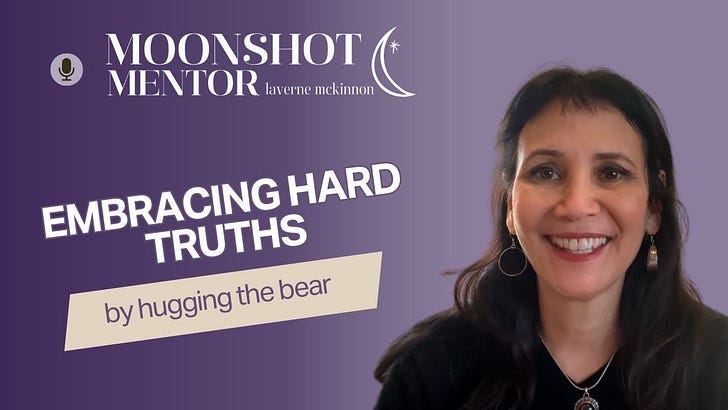Lately, something feels off. The skills that once set you apart don’t seem as valuable. Job descriptions read like they’re written for someone else. Conversations about AI and automation make you wonder if your experience still holds weight. Maybe you were laid off, or maybe you’re just sensing a shift—a quiet but growing fear that the career you worked so hard to build is slipping out of your grasp.
This isn’t just professional uncertainty—it’s FOBO, the fear of being obsolete. And it’s not just about staying relevant in a changing job market. It’s about identity, about mourning the version of yourself that once felt secure, capable, and needed.
And it’s happening on a massive scale. In February alone, U.S. employers announced 172,017 job cuts—a 245% increase from the previous month, marking the highest layoff numbers since the Great Recession. Layoffs in the public sector skyrocketed by 41,311%. As one labor market expert, Andrew Challenger, Senior Vice President at Challenger, Gray & Christmas, put it:
“When mass layoffs occur, it often leaves remaining staff feeling uneasy and uncertain. The likelihood that many more workers leave voluntarily is high.”
In other words, even if you haven’t been laid off, you may be wondering how long you’ll last—or if you still have what it takes to compete.
Career Grief: When the Rules No Longer Apply
The fear of obsolescence isn’t just about skill gaps. It’s about the loss of certainty. Many of us built our careers around beliefs that once felt like unshakable truths. But in today’s landscape, those beliefs are being dismantled:
“If I follow my passion, I’ll have a long, fulfilling career.” The reality: Entire industries are disappearing or radically shifting. Passion is important, but passion alone won’t insulate you from market forces.
“If I work hard, I will always have a job.” The reality: Hard work is no longer a guarantee of security. Companies restructure, industries evolve, and the definition of ‘valuable work’ is constantly shifting.
“If I’m loyal to my employer, they will be loyal to me.” The reality: Long-term employees are often the first to go in cost-cutting measures. The age of company loyalty is fading.
“My experience makes me indispensable.” The reality: Some experience is invaluable. But if your experience is tied to outdated methods, your value decreases.
The unraveling of these beliefs creates a deep sense of loss—career grief. You’re mourning not just a job or a paycheck, but a version of the world where effort and dedication felt like enough.
The Hard Truth: Some Skills Are Obsolete
This is where it gets uncomfortable. Sometimes, FOBO isn’t just fear—it’s reality. Industries change, jobs disappear, and the skills you once relied on may no longer be relevant.

That’s a hard truth. But it’s not the only truth.
Because while some skills become obsolete, others transfer. Critical thinking, leadership, problem-solving, creativity, adaptability—these skills don’t expire. And the good news? One of the best things about being human is that we can learn.
We may not want to, but we can.
The Rise of Soft Skills: Your Unseen Advantage
In this shifting landscape, soft skills—like communication, conflict resolution, and leadership —are more crucial than ever. While technical skills can become outdated, soft skills remain relevant across roles and industries.
Consider this: Research from Harvard University, the Carnegie Foundation, and the Stanford Research Center indicates that soft skills now account for 85% of career success, far outweighing technical abilities.
Moreover, emotional intelligence (EQ)—our ability to understand and manage emotions—plays a significant role in professional success. Unlike IQ, which remains relatively stable, EQ can be developed and enhanced over time.
Investing in soft skills and developing your EQ can provide a competitive edge in an unpredictable job market.
How to Navigate Career Grief and FOBO
FOBO may convince you that your best days are behind you, but the truth is, you have more agency than you think. Instead of focusing on what’s been lost, it’s time to consider what can be built. Here’s how to move through the grief and uncertainty, and toward a career that evolves with you.
Acknowledge the Loss – It’s okay to mourn what was. The career landscape has changed, and pretending it hasn’t won’t help. Give yourself space to process the frustration, sadness, or even anger.
Identify Transferable Skills – What have you mastered that still holds value? Strategic thinking, relationship-building, leadership? Skills like these transcend industries.
Decide What You Want to Learn – Learning something new doesn’t mean starting over. It means adding to what you already know. Choose one area to upskill that aligns with where industries are headed.
Redefine Success – If career longevity and company loyalty are no longer guarantees, what does success look like now? Flexibility? Project-based work? Autonomy? Find a definition that fits today’s reality.
Bottom Line: You’re Not Done—You’re Adapting
FOBO can make it feel like the ground is shifting beneath you, but change has always been part of work. The difference now is the pace—and the mindset you bring to it. You are not obsolete; you are adapting. And adaptation isn’t just about survival—it’s about growth.
The question isn’t “How do I catch up?” but “How do I evolve in a way that aligns with who I want to be?”
Before You Go … Facing FOBO with Support & Strategy
The fear of being obsolete isn’t just about staying relevant—it’s about what happens when the career you built no longer feels secure. Losing a job, a project, or a professional identity can bring a kind of grief that’s hard to name. But just because career loss isn’t always recognized doesn’t mean it isn’t real.
If you’re struggling with uncertainty, questioning your next steps, or feeling stuck in career grief, The Career Grief Compass: 5-Part Workshop Series is designed to help. This interactive series will guide you through the PHOENIX Framework—a structured approach to naming what’s been lost, reframing setbacks, and taking small, intentional steps forward. Each session blends reflection, practical tools, and live discussion, so you’re not navigating this alone.
What You’ll Gain
✔️ A deeper understanding of career grief—and why it’s been holding you back
✔️ A structured way to process loss and rewrite your career narrative
✔️ One small but bold action you can take immediately to start moving forward
Workshop Details
🗓️ First session: Tuesday, April 22, at 3:30 PM PST
📅 Runs every other Tuesday through June 17
💡 Exclusive for paid subscribers ($5/month or $50/year)
Paid subscribers also get access to:
✔️ Co-working sessions to stay accountable and make progress
✔️ Exclusive guided meditations to support career transitions
✔️ A supportive community of professionals redefining success on their terms
If you’re ready to move from fear and uncertainty to action and confidence, subscribe now and join the conversation.
Reflect & Reframe: Journal Prompts to Navigate FOBO
FOBO and career grief can bring up a mix of emotions—uncertainty, frustration, even a sense of loss. But reflection can help you process these feelings and identify a path forward. Here are three journal prompts to help you explore what’s shifting, what still holds value, and how you can move forward with clarity and confidence.
Listen to this episode with a 7-day free trial
Subscribe to Moonshot Mentor with Laverne McKinnon to listen to this post and get 7 days of free access to the full post archives.













